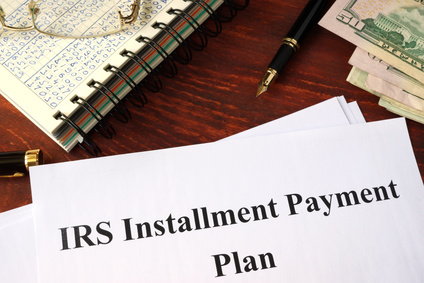
Table of Contents
Countless people, despite their best efforts, find themselves owing money to the Internal Revenue Service. For some of these taxpayers, the situation is a bit more difficult because they simply don’t have the money to pay the amount in full. This, however, is not the time to panic, because you can find your way out of the problem through provisions such as IRS tax installment agreements. With the help of an experienced IRS tax lawyer, you can request a workable payment plan that is manageable and less stressful. Continuing on the subject, we give you an overview of the various types of IRS tax installment agreements offered by the IRS. Read on.
Types of IRS Tax Installment Agreement
There are several types of installment agreements, one of which will likely work well for your specific situation. Take some time now to read the basic information about each type, then get in touch with your tax-law professional to discuss the options, which include:
- Guaranteed Installment Agreement : If you owe less than $10,000 and can satisfy certain other conditions, this may be the path for you. If this request is approved, the IRS does not file a federal tax lien.
- Partial Payment Installment Agreement : As the name implies, the taxpayer makes a partial payment of taxes owed, after filling out a form to report income and living expenses. This process includes a financial review every two years.
- Streamlined Installment Agreement : If you owe $50,000 or less (since 2017) you can request a streamlined agreement. This plan includes paying off the balance in 72 months or less. The IRS doesn’t file a federal tax lien.
- Non-Streamlined Installment Agreement : This agreement is for those owing more than $50,000. If you don’t qualify for other plans and need a repayment program lasting longer than five years, non-streamlined may be right for you.
Missed a Payment?
The first step you must take if you missed a payment on your installment agreement is to make that payment as soon as possible. This will help you avoid interest and penalties, or starting over the IRS collection process.
If you do miss a payment, you are considered in default, according to the agreement. You may receive a notice of intent to terminate the agreement (CP523). That notice generally includes a deadline for payment, which you must meet to avoid collection actions. This won’t affect your credit score immediately, but it may cause your score to go down if the IRS files a tax lien and reports this information.
Don’t Let IRS Tax Problems Keep You Up at Night
Speak with an experienced tax attorney and take the first step toward peace of mind.
Need More Info? Consult a IRS Tax Lawyer
IRS tax installment plans can be the saving grace for many taxpayers who want to pay their tax liabilities but are actually unable to due to financial constraints. If you are thinking on the lines of requesting an IRS tax installment agreement, speak with one of the IRS tax lawyers at the Law Offices of Nemeth & Flores. Our IRS tax professionals can analyze your financial situation and work with you to choose an installment program that best suits your situation. For a free, no-obligation consultation, call (972) 426-2553 or fill out our contact form and we will get right back to you.


